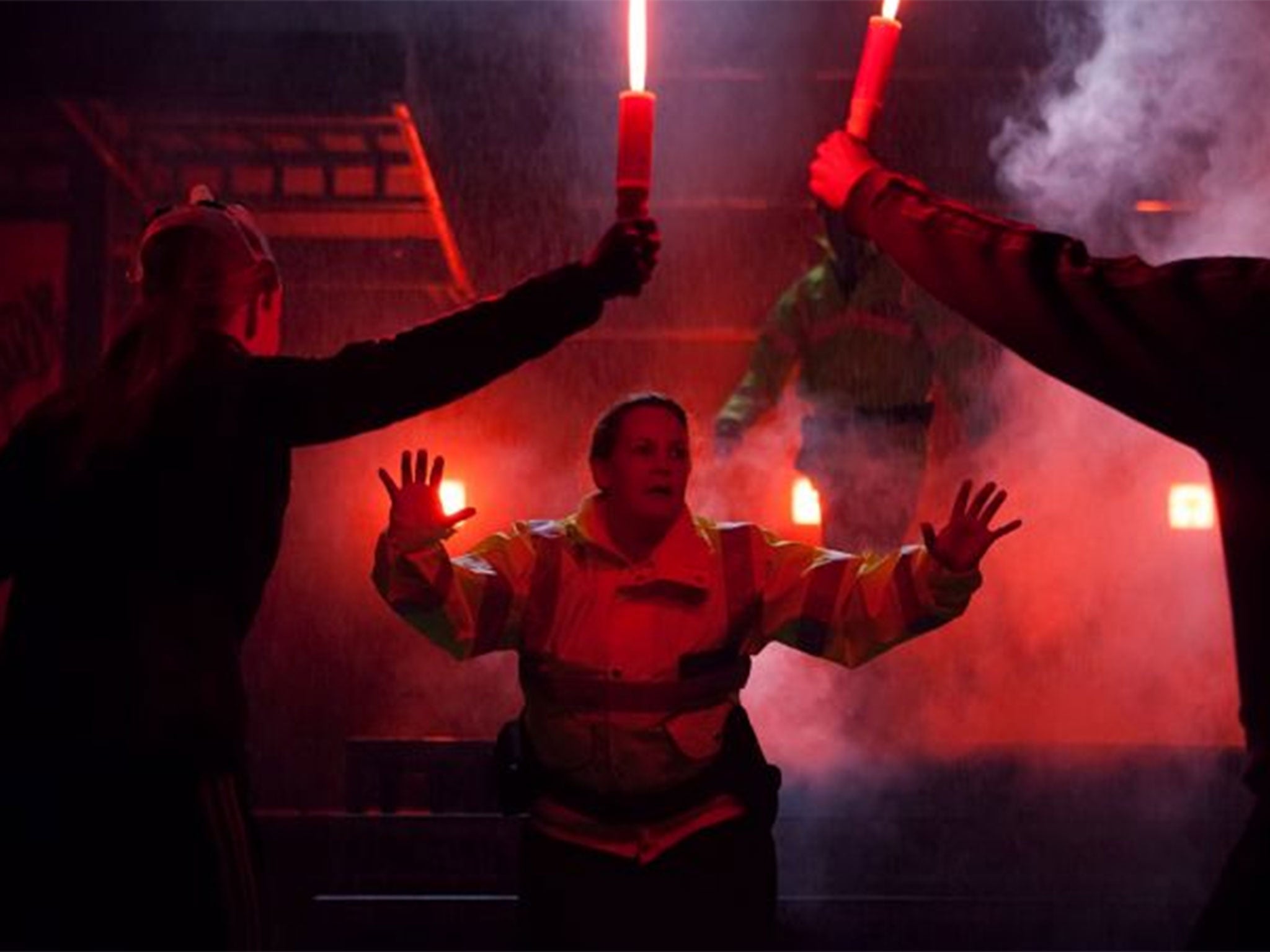Wildefire review: A streetwise show that doesn’t miss a beat
Williams conjures up the police’s sexist ethos with his keen ear for banter

The police have often featured in the plays of Roy Williams. One thinks of his penetrating treatment of the conflicted post-Macpherson team investigating the murder of a studious black teenager in the excellent Fallout (2003).
But in Wildefire, his latest work, premiered now at Hampstead in a visceral, spiralling-into-nightmare production by Maria Aberg, he puts the police centre stage for the first time, exploring – with his usual insight and empathy – the emotional, psychological and moral toll on officers in the badlands as they struggle to cope with humanity at its least edifying.
The show, fluently performed on a harsh gym-like open arena, begins with a spotlit appearance from Sir Robert Peel addressing Parliament about the principles on which the Met was founded in 1829 – that such should be the respect and the willing co-operation that the force inspires that, effectively, “the police are the public and the public are the police”. A very far cry from the world that Williams’s protagonist, Gail Wilde – nicknamed “Wildefire” because of her fiery spirit – discovers when she transfers from the relative placidity of Horsham to a south London nick, seeking the “buzz” of working for the Met.
Bright-eyed and bushy-tailed with idealism, she dreams of operating in the tradition of her grandfather, a bobby so loved by the community that the whole of Mile End showed up for his funeral. But that’s almost farcically impossible to reproduce in an area where gang-rape initiation ceremonies and violent clashes between football supporters are the order of the day. Desolating scenes with a battered young woman who obdurately refuses to give a statement about the abusive lover to whom she is in frightened thrall see Gail’s patient, attentive approach thrown back in her face. And when she is teamed up with the hardened but engaging Spence (well played by Ricky Champ), the unlovely realities of modern policing, such as the paying of informants and illicit beatings, are laid bare.
If the character feels a bit artificially naive at the outset, the script and Lorraine Stanley’s wonderfully unsparing performance chart with gut-wrenching credibility Gail’s decline into acceptance of this dodgy culture and (after the brutal climax of the first act) into dependence on pain-killing drugs. There follows a series of catastrophic professional misjudgements, neglect of her family and a guilt-ridden drunken despair that manifests itself as a cringe-making parody of the lewd cynicism that prevails among her male colleagues – a casually sexist ethos that Williams conjures up with his keen ear for sharp, streetwise banter.
Running at 85 minutes without an interval, the production has the momentum of a horrible dream. The climactic riots which seem to be partly a projection of Gail’s disintegrating mental state mean that the piece may disappoint people who were hoping for a more expansive sociological low-down on the Met. But it pulls you inside the head of a female officer suffering a crash course in professional disillusion with arresting power.
To 29 November (020 7722 9301)
Subscribe to Independent Premium to bookmark this article
Want to bookmark your favourite articles and stories to read or reference later? Start your Independent Premium subscription today.

Join our commenting forum
Join thought-provoking conversations, follow other Independent readers and see their replies